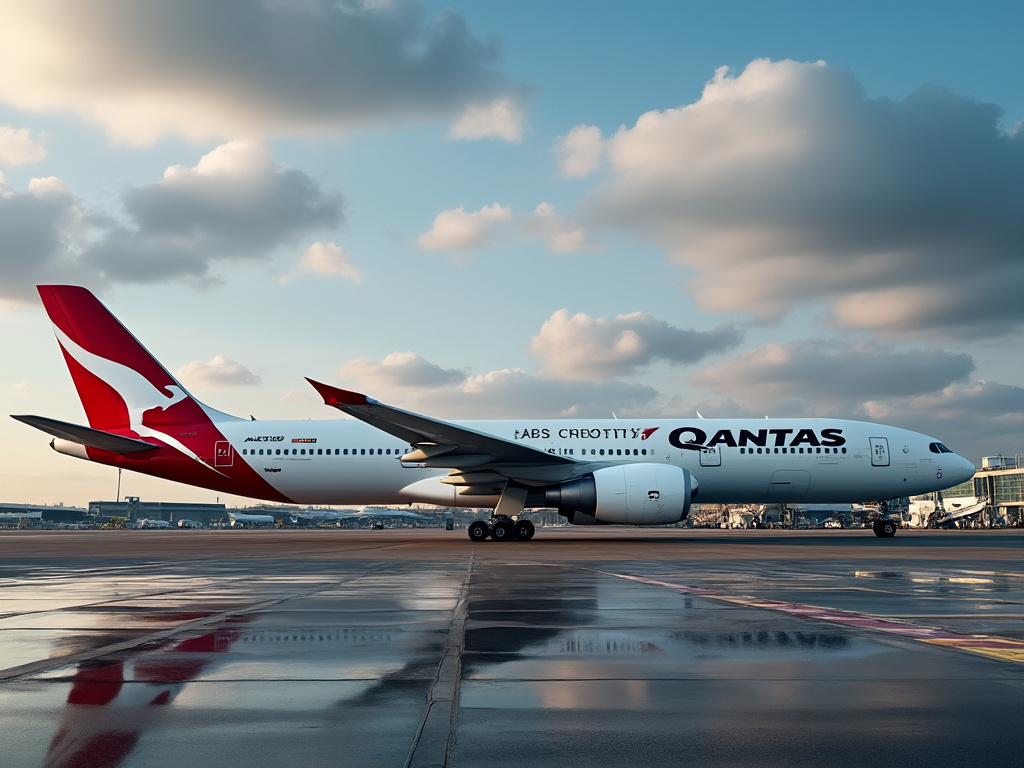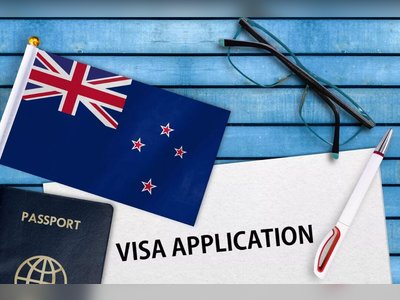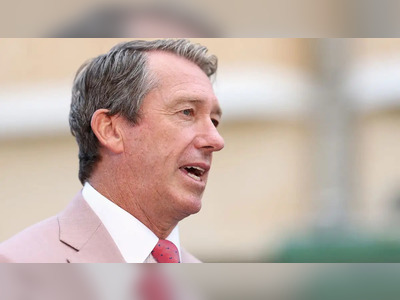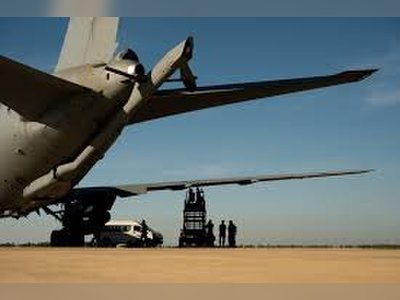
Qantas Faces Potential Multi-Million Dollar Penalty as Legal Challenges Loom
The airline anticipates a significant ruling from the Federal Court regarding the illegal outsourcing of ground-handlers during the pandemic.
Qantas is poised for a critical ruling from the Federal Court regarding its decision to illegally outsource 1,800 ground-handling jobs during the COVID-19 pandemic in 2020. This legal battle comes approximately 20 months after former CEO Alan Joyce departed from the airline, leaving behind a complex legacy for current CEO Vanessa Hudson to navigate.
The maximum penalty that Qantas could face amounts to $121 million.
This potential fine would add to the already significant costs for the airline, which previously reached a $120 million settlement with unions in 2022 as compensation for the economic hardships faced by the affected employees.
In addition, Qantas incurred another $120 million in costs related to a separate incident, known as the ghost flight episode, in which the airline sold tickets for flights that had been canceled.
If the Federal Court imposes the full $121 million penalty, the cumulative financial repercussions for Qantas could exceed $360 million.
Furthermore, the airline faced pressures to refund or extend the expiration date on more than $500 million worth of COVID credit claims after receiving customer complaints regarding difficulties in redeeming these credits.
Hudson's leadership signals a drive to distance the airline from Joyce's tumultuous tenure.
Despite these ongoing challenges, Qantas reports improvements in customer satisfaction scores, punctuality of flights, and the timely arrival of passenger luggage, suggesting an upward trend in operational performance.
The airline's financial health appears strong, with a 68% increase in its share price over the past year.
This positive trajectory is reflected in growing travel demand, as Australians continue to travel despite the prevailing cost of living crisis.
Despite a decrease in Australian visitors to the United States—approximately 7% according to the U.S. government's International Trade Administration—Qantas has not seen a corresponding decline in bookings.
While several U.S. airlines have revised their earnings forecasts downward, Hudson expressed optimism at a recent investment conference, citing a decline in oil prices and a favorable currency exchange rate as beneficial for Qantas.
This context supports the airline's robust market position.
Additionally, the operational success of Qantas has created favorable conditions for Virgin Australia, which is owned by private equity firm Bain Capital, to consider an initial public offering (IPO).
Virgin Australia is reportedly prepared for a potential listing on the Australian Securities Exchange (ASX) next month, bolstered by the appointment of a new chief executive and a strategic investment from Qatar Airways.
However, global market dislocations, including uncertainties stemming from U.S. trade policy under former President Donald Trump, pose risks to any planned IPOs.
The airline industry is no stranger to external shocks, having faced various crises in the past, including the aftermath of 9/11, the SARS outbreak, and the COVID-19 pandemic.
As the industry prepares for recovery, stakeholders are mindful of historical volatility and its impact on airline operations.
The maximum penalty that Qantas could face amounts to $121 million.
This potential fine would add to the already significant costs for the airline, which previously reached a $120 million settlement with unions in 2022 as compensation for the economic hardships faced by the affected employees.
In addition, Qantas incurred another $120 million in costs related to a separate incident, known as the ghost flight episode, in which the airline sold tickets for flights that had been canceled.
If the Federal Court imposes the full $121 million penalty, the cumulative financial repercussions for Qantas could exceed $360 million.
Furthermore, the airline faced pressures to refund or extend the expiration date on more than $500 million worth of COVID credit claims after receiving customer complaints regarding difficulties in redeeming these credits.
Hudson's leadership signals a drive to distance the airline from Joyce's tumultuous tenure.
Despite these ongoing challenges, Qantas reports improvements in customer satisfaction scores, punctuality of flights, and the timely arrival of passenger luggage, suggesting an upward trend in operational performance.
The airline's financial health appears strong, with a 68% increase in its share price over the past year.
This positive trajectory is reflected in growing travel demand, as Australians continue to travel despite the prevailing cost of living crisis.
Despite a decrease in Australian visitors to the United States—approximately 7% according to the U.S. government's International Trade Administration—Qantas has not seen a corresponding decline in bookings.
While several U.S. airlines have revised their earnings forecasts downward, Hudson expressed optimism at a recent investment conference, citing a decline in oil prices and a favorable currency exchange rate as beneficial for Qantas.
This context supports the airline's robust market position.
Additionally, the operational success of Qantas has created favorable conditions for Virgin Australia, which is owned by private equity firm Bain Capital, to consider an initial public offering (IPO).
Virgin Australia is reportedly prepared for a potential listing on the Australian Securities Exchange (ASX) next month, bolstered by the appointment of a new chief executive and a strategic investment from Qatar Airways.
However, global market dislocations, including uncertainties stemming from U.S. trade policy under former President Donald Trump, pose risks to any planned IPOs.
The airline industry is no stranger to external shocks, having faced various crises in the past, including the aftermath of 9/11, the SARS outbreak, and the COVID-19 pandemic.
As the industry prepares for recovery, stakeholders are mindful of historical volatility and its impact on airline operations.
AI Disclaimer: An advanced artificial intelligence (AI) system generated the content of this page on its own. This innovative technology conducts extensive research from a variety of reliable sources, performs rigorous fact-checking and verification, cleans up and balances biased or manipulated content, and presents a minimal factual summary that is just enough yet essential for you to function as an informed and educated citizen. Please keep in mind, however, that this system is an evolving technology, and as a result, the article may contain accidental inaccuracies or errors. We urge you to help us improve our site by reporting any inaccuracies you find using the "Contact Us" link at the bottom of this page. Your helpful feedback helps us improve our system and deliver more precise content. When you find an article of interest here, please look for the full and extensive coverage of this topic in traditional news sources, as they are written by professional journalists that we try to support, not replace. We appreciate your understanding and assistance.











